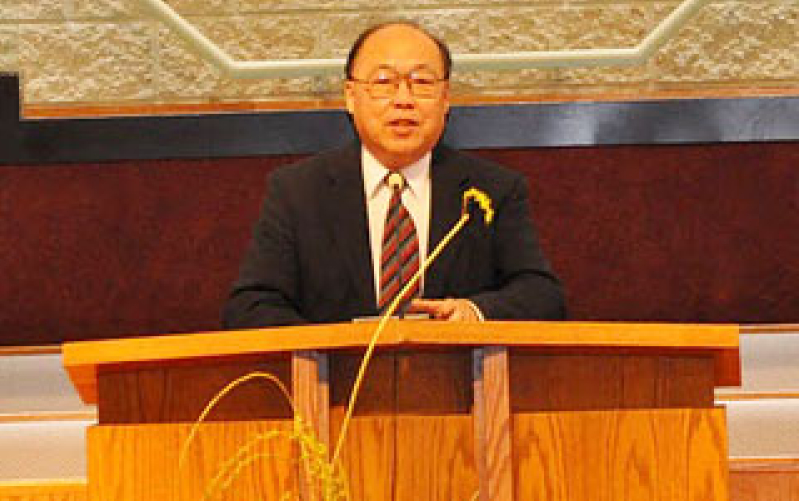
After sharing about the relationship between prayer and evangelism, Rev. Jonathan Chiu, president of USA Care Ministries International (CMI), explains the meaning of church mission at a missions conference held in Lord's Grace Church in New Jersey.
"Mission is not an option among the various church ministries, but it is their mission. In another words, church is established for mission," emphasized Chiu.
In order to deepen the believer's understanding of evangelism, Chiu stresses on the mission of evangelism, citing the classics. He said the whole Bible is a book about missions. Jesus Christ, His only son, is a missionary. The purpose He establishes church is to fulfill the Great Commission of Jesus Christ. So evangelism is the great mission of the church.
Chiu distinguishes evangelism from other church ministries, pointing out that mission is a ministry that is above all others - a work that church should do first and invest the most resources in.
In his eyes, the ultimate goal of all the ministries in church is evangelism. For example, education, smalls groups, service and care, development of preaching and ministries are all to prepare for evangelism/missions. So evangelism should not be placed equally with other ministries. And churches should pay attention to the development of evangelism.
Comparing to the topic of missions, church health and church growth seem to be much more attractive topics. Chiu said he is not opposed to churches seeking for health and thinks that it is indeed good that churches seek to be healthy, but he clarifies, "Health isn't the ultimate goal of the church, but the fulfillment of the Great Commission of Jesus Christ."
Chiu also mentioned that there are misunderstandings towards missions among the church members; they incorrectly think that evangelism is the mission only for large churches. Unless the church grows bigger, it cannot be qualitifed for missions. It may sound reasonable, but he pointed out that it's from men's thoughts, not from the teaching of Bible. "From the beginning of church establishment, it should devote for evangelism/mission, which can stimulate church growth. If you don't evangelize, the small church can never grow bigger."
Chiu said that the church that evangelizes is blessed by God. Those examples can be found everywhere. He gives an example of a Korean church in Los Angeles, named Grace Church. For 25 years since the church's establishment, they've sent and supported more than 400 missionaires and established over 2,000 branch churches in the world.
Now, the home church of Grace Church in Los Angeles has nearly 10,000 members and their passion for mission has not dwindled down but is increasing. It's said that they have invested half of their church income on mission ministries every year. What makes Chiu especially moved is that all pastors in Grace Church willingly donate two months worth of theyr paychecks to support these overseas missionaries.
From Grace Church's perspective, mission is the cardinal task that is of the utmost importance, where their talents, money, and other resources should serve for missions. Only after the mission ministries enter onto a steady path of growth will they think about the construction of their own sanctuary.
In conclusion, Chiu stated that whether a church or an individual, there is no shirking the responsibility for missions. The churches and believers who fulfill the missional calling will find favor from and be blessed by God. He hopes for the vast number of churches and believers can reacquaint the important significance of missional calling and devote their own strength for it.
[Editor's note: reporter Wendy Lee translated this report.]






